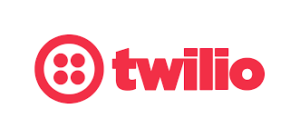 Flexing its lofty market capitalization, Twilio is using about $3.2 billion worth of its common stock to acquire Segment, which operates a cloud-based customer data platform (CDP) that aggregates information about individuals from a multiplicity of sources. With this acquisition Twilio takes a giant step toward redefining the elements that comprise a full-stack of features and functions in Communications Platform as a Service (CPaaS) offering. It has special relevance in the increasingly competitive Contact Center as a Service (CCaaS) marketplace where the routing decisions, agent recommendations and virtual assistants will be informed by up-to-date records of recent purchase activity, emails read, propensity to buy and other dynamic descriptors.
Flexing its lofty market capitalization, Twilio is using about $3.2 billion worth of its common stock to acquire Segment, which operates a cloud-based customer data platform (CDP) that aggregates information about individuals from a multiplicity of sources. With this acquisition Twilio takes a giant step toward redefining the elements that comprise a full-stack of features and functions in Communications Platform as a Service (CPaaS) offering. It has special relevance in the increasingly competitive Contact Center as a Service (CCaaS) marketplace where the routing decisions, agent recommendations and virtual assistants will be informed by up-to-date records of recent purchase activity, emails read, propensity to buy and other dynamic descriptors.
All the Signs Were There at Signal
The deal must have been well underway during Signal 2020, its global conference for partners; yet, there was little or no mention of customer data platforms during the two day event. In his briefing with analysts, Chief Revenue Officer Marc Boroditsky painted the portrait of a company left the distinct impression that the innovations with greatest promise for revenue generation were decidedly customer-facing and enterprise focused. The company is beefing up its ecosystem of go-to-market partners and resources. Compliance with vertical regulations and strictures, building its services staff and building an ecosystem of go-to-market partners are high priority.
When describing its future direction the terms “Connected Customer”, “Trusted Enterprise”, “Modern Customer Contact Center” and “Individualized Experience” are the watchwords. Upon reflection, that was a tell.
- “Connected Customer” referred to the support of adding video in the form of Web RTC, but according to Boroditsky, attention is shifting to “breadth and depth”, using terms like “omnichannel” and “Programmable.” As we have come to know, programmable systems feed off of data for decision making and rule-based triggers. Boroditsky also referred to “event streams” and the prospect of building a single view of the customer and customer history. That, right there, describes what Segment brings to its mix.
- “Trusted Enterprise” customarily refers to boring topics like access control, data residency and sovereignty. In the wake of the Segment acquisition, Twilio is using all the magic terms surrounding the possibility of user control of the data they share. Segment, to this point, is just a point of aggregation for the personal data and “activity streams” that comprise the exhaust trails all of us emit as we go about online search and shopping. Inclusion of “sovereignty” as one of its criteria signals that Twilio may be one of the first infrastructure providers set to give customers sovereignty over their own personal information. Given Segment’s origin, that would involve a major change of focus.
- “Modern Customer Contact Center” has a name. It is Flex, a CCaaS offering that has attracted an ecosystem of go-to-market partners and developers to put it on a par with Amazon, Vonage, 8×8, Cisco and RingCentral in pursuit of the CPaaS/CCaaS combo and with NICE/InContact, Genesys and Five9 among companies that put the greater emphasis on CCaaS
- “Individualized Experience” should have triggered more queries from analysts, like myself. The accompanying slideware asserted the “Customers feel special and get high impact, individualized experiences at scale.” It is a laudable promise, and it felt hollow in advance of the acquisition of Segment
Whither Conversational AI and Intelligent Assistance
In the context of data, nature abhors a silo. Just ask the early investors in Snowflake, the cloud-based data aggregation specialist found that it had grossly underestimated investor appreciation of the role it is about to play as a Switzerland of sorts for enterprise data. It is a repository without borders, shattering silos and filling gaps that have become more evident as companies build applications that rely on rapid retrieval of data to inform applications, like virtual assistants, in real time. Until executing the Segment acquisition, Twilio pointed to Autopilot as its entry point into ConversationnalAI. It is, at base, a bot builder that brings natural language understanding (NLU) resources to enable customers to type or text queries in their own words.
The addition of Segment has the potential to improve conversational offerings on two fronts. For one thing, it will provide access to a large pool of training data to make understanding and of responses more accurate out of the box. For another, it will provide virtual agents with the ability to provide more personalized responses to customer input based on the data and metadata aggregated about those individuals. Finally, Twilio and its developer community have an opportunity to build solutions that enable customers to take control of the data that they provide to customers in order to receive more personalized and trusted services. At this point, that might not be on their roadmaps, but the change has to come.
Categories: Intelligent Assistants, Articles

 NiCE Interactions 2025: Agentic AI, Better Data, and a Whole Lot of Partnership
NiCE Interactions 2025: Agentic AI, Better Data, and a Whole Lot of Partnership  Getting It Right: What AI Agents Actually Mean for Customer Support (Webinar)
Getting It Right: What AI Agents Actually Mean for Customer Support (Webinar)  Beyond the Basics: How AI Is Transforming B2B Sales at TP
Beyond the Basics: How AI Is Transforming B2B Sales at TP  Five9 Launches Agentic CX: Toward AI Agents That Reason and Act
Five9 Launches Agentic CX: Toward AI Agents That Reason and Act